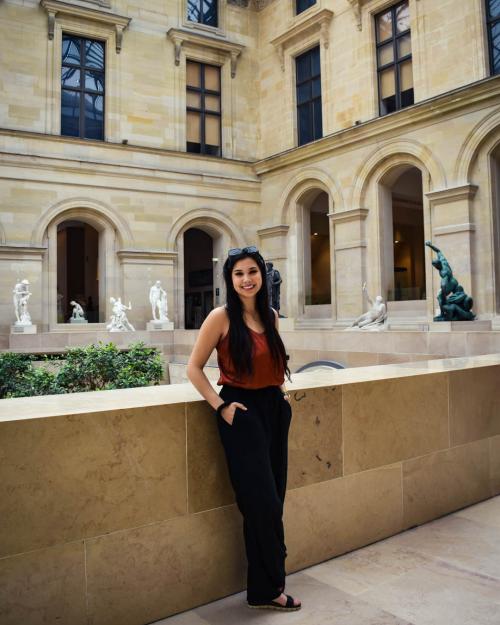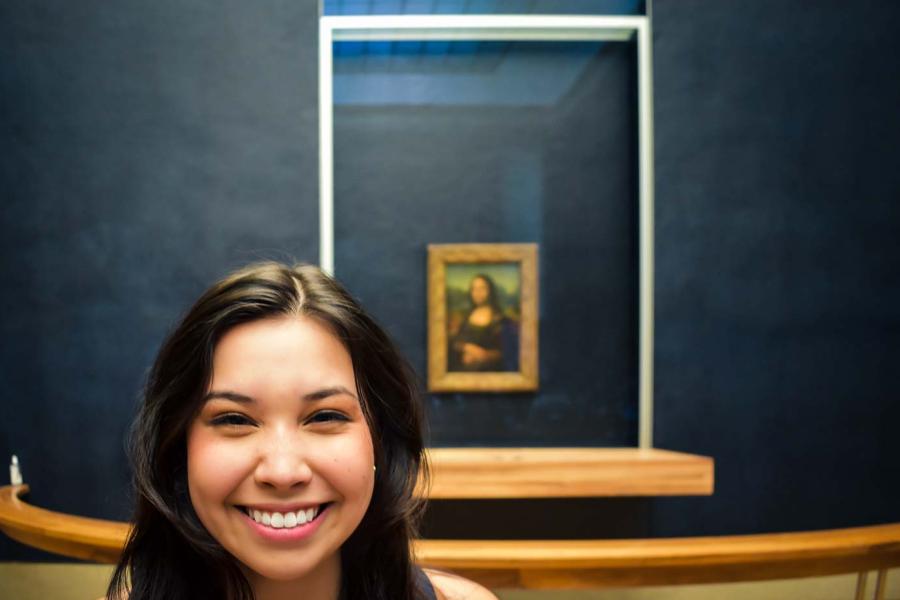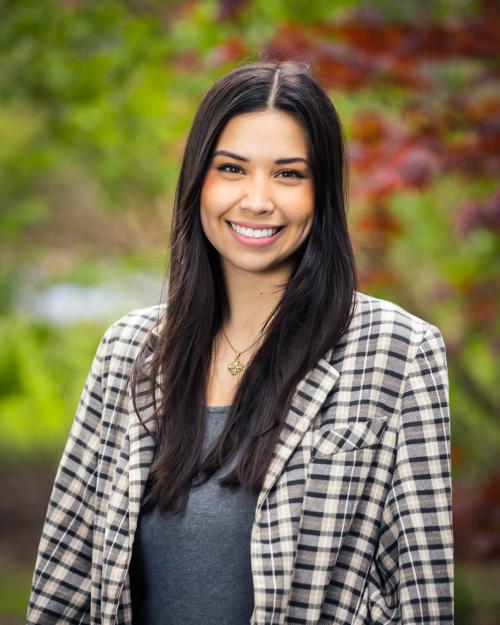Hannah Master
Archaeology, Near Eastern Studies
Philadelphia, Pa.
What is your main extracurricular activity and why is it important to you?
I've spent three years working at the Johnson Museum of Art and it has utterly changed my life. In the elite academic humanities circles, I think it can sometimes be difficult to connect the
relative obscurity of your work with the everyday person in ways that are really tangible. In my time at the Johnson Museum (under the mentorship of my extraordinary and wonderful boss, Dr. Andy Weislogel), I've been able to produce all sorts of educational content (from videos to classroom presentations) and even contribute to two major exhibitions ("Visions of Dante" in Fall 2021 and "Wonder and Wakefulness: The Nature of Pliny the Elder" currently on view — go check it out before it closes on June 11!). My time at the Johnson Museum has allowed my work and passions in archaeology, history and art to translate from words on a page to paintings and sculptures and other objects that people can actually see (and sometimes touch!) in full view.
What Cornell memory do you treasure the most?
During my freshman fall, I was randomly wandering McGraw Hall looking for a professor's office when I heard two people talking about anthropology and archaeology. When I turned to peek into the room I saw the two-story archive room for the Cornell Anthropology Collection, where Prof. Fred Gleach — the curator in charge of the collection — was talking to a performing and media arts professor about different traditional Filipino performance costumes. They were finishing up their meeting, and so when I peeked in he saw me and immediately invited me to come and look at the collection with a leading line of "Do you want to hold a million-year-old rock?" That interaction turned into a much longer conversation about archaeology and collections at Cornell (and I did, in fact, get to hold the million-year-old rock—a paleolithic hand axe, at that!). He and I have only crossed paths a few other times because of the pandemic, but I'll never forget the hospitality and enthusiasm that he extended, and it was one of the first times that I remember knowing that Cornell was really the place where I was meant to be.
What are the most valuable skills you gained from your Arts & Sciences education?
For one, I learned a lot of languages in my time at Cornell — I took two full years of modern Hebrew, a year and a half of Ancient Greek, a year of Latin, a semester of Biblical Hebrew and a semester of Akkadian (the dead cuneiform language that The Code of Hammurabi was written in!). There are very, very few places in the world where I could've possibly had access to the resources necessary to learn the breadth of languages that I've learned at the depth that I've learned them in, and Arts & Sciences is one of them. For another, I've become a much better writer and researcher in my time at Arts & Sciences. In my sophomore year, I was granted permission to take a graduate-level archaeology course where I essentially did a bootcamp for academic writing in archaeology. My time working with the Rawlings Presidential Research Program and the Humanities Scholars Program also opened up a huge number of doors for me to spend dedicated time in research and getting consistent feedback on my writing progress and abilities.
How have your beliefs or perspectives changed since you first arrived at Cornell?
My beliefs and perspectives have both changed and deepened since I first arrived at Cornell in fairly profound ways. I've met people at Cornell who come from all walks of life with a huge diversity of perspectives and outlooks that have greatly expanded and shaped the way that I think about the world. Cornell gave me space to learn how to critically assess others' points of views and how to stand firm or change my own as appropriate.
Who or what influenced your Cornell education the most? How or why?
The Chesterton House has probably influenced me more than anything else at Cornell and I cannot wait to work and serve with them next year! I was able to take advantage of the programs that were held at the house and also live there at the same time, making it hugely impactful for the way that I approached my daily rhythms while also shaping me in all aspects of my life—not just the academic ones. Chesterton House offered me such a unique space where I could have really high level academic and philosophical and theological conversations with my peers in one moment, and then go cook meals with them and clean our houses for lecture events in the next. This space has also surrounded me with people that I probably wouldn't have met otherwise, who come from different walks of life with different goals and different gifts and talents. The Chesterton House has given me an appreciation for many more aspects of my Cornell education than I think I could have achieved on my own, and they've made me understand with more clarity than possibly anything else why I was meant to be at Cornell for these past four years and what I was meant to do with my time here.
What are your plans for next year?
I'm doing a one-year service fellowship with the Chesterton House at Cornell while I apply to graduate school for Mediterranean Archaeology.
Every year, our faculty nominate graduating Arts & Sciences students to be featured as part of our Extraordinary Journeys series. Read more about the Class of 2023.






